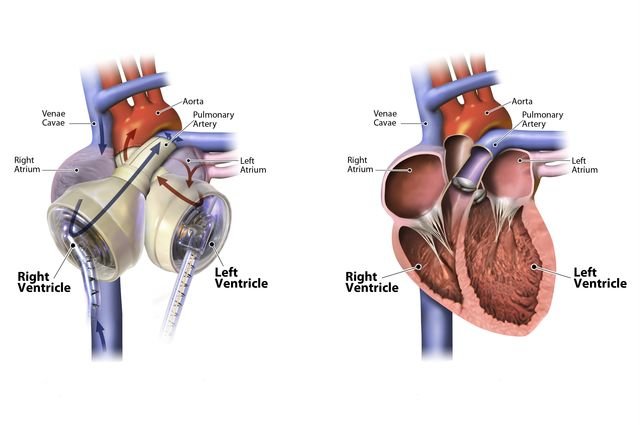A 44-year-old woman has received a successful heart transplant, thanks to an experimental Total Artificial Heart designed for smaller patients. The patient is the first person in California to receive the smaller Total Artificial Heart, and the first patient in the world with the device to be bridged to a successful heart transplant.
The 50cc SynCardia temporary Total Artificial Heart is a smaller investigational version of the larger 70cc SynCardia heart, which was approved for use in people awaiting a transplant by the FDA in 2004 and has been used by more than 1,440 patients worldwide.
The 50cc device is designed to be used by smaller patients — including most women, some men and many adolescents — with end-stage biventricular heart failure, where both sides of the heart are failing to pump enough blood to sustain the body. The device provides mechanical support until a donor heart can be found.
Nemah Kahala, a wife and mother of five, was transferred to UCLA from Kaiser Permanente Los Angeles Medical Center in March. She was suffering from restrictive heart muscle disease and in critical condition. Her heart failure was so advanced that repair surgery and other mechanical assist devices could not help.
Kahala was placed on a life support system called extra corporal membrane oxygenation, but this only works for about 10 days before a person’s organs begin to deteriorate.
With the clock ticking, doctors needed to buy time by replacing Kahala’s failing heart with an artificial heart while she waited for a heart transplant. Her chest cavity was too small for her to receive the larger 70cc artificial heart. However, under a one-time emergency use permitted under FDA guidelines, her doctors were able to implant the experimental 50cc device.
